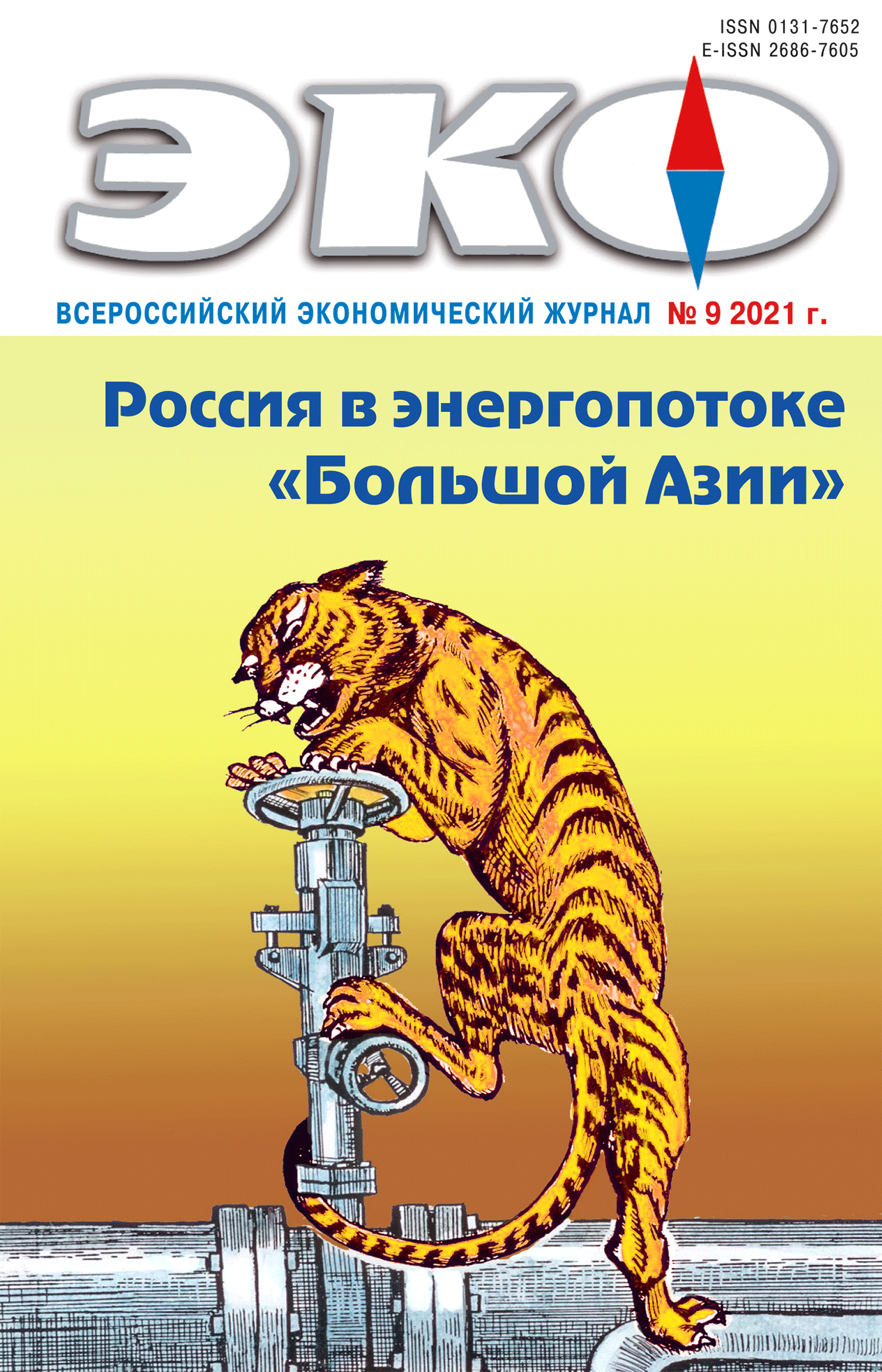Тема номера: Россия в энергопотоке "Большой Азии"
Published 2021-08-27
Keywords
- Asia Pacific region (АРR),
- demand,
- extractions,
- import dependence,
- oil
- natural gas,
- climate policies,
- carbon tax ...More
How to Cite
1.
Ghukov С, Reznikova О. Asia Pacific Countries: the World Leading Center of Demand for Hydrocarbons. ECO [Internet]. 2021 Aug. 27 [cited 2026 Jan. 25];51(9):8-20. Available from: https://ecotrends.ru/index.php/eco/article/view/4307
Abstract
The paper argues, that the Asia Pacific countries have emerged as the new masters of global demand for oil and to a lesser extent for natural gas. That is especially evident if one uses incremental indicators of energy resource consumption. Keeping up high rates of economic growth in countries of low and medium level of development, which established themselves as exporters of manufactured goods in the world division of labor, imperatively requires an increased consumption of hydrocarbons. Stagnation or decrease in their own production of oil and natural gas in the situation of a growing demand for hydrocarbons results in stronger dependence on imports. In its turn, that opens additional opportunities for oil exporting countries to expand their export niches. The Asia Pacific region lags behind other leading global economic centers in the implementation of active climate policy and promotion of a low carbon paradigm. The peak in oil demand in the region will be achieved several years later than in the rest of the world. The authors conclude that a dynamic growth of demand for oil and natural gas in the Asian Pacific countries will be maintained for at least two decades.References
- Dash, D.P., Sethi, N., Bal, D.P. (2018). Is the Demand for Crude Oil Inelastic for India? Evidence from Structural VAR Analysis. Energy Policy.Vol.118. Pp. 552–558. DOI: 10.1016/j.enpol.2018.04.001
- Goldemberg, J. (2020). The Evolution of the Energy and Carbon Intensities of Developing Countries. Energy Policy. Vol. 137. DOI: 10.1016/j.enpol.2019.111060
- Hong, C.-Y., Hsu, C.-J. (2018). Economic Growth, Oil Consumption and Import Intensity: Factor Decomposition of Imported Crude Oil Model Approach. International Journal of Energy Economics and Policy. Vol. 8. Pp. 152–156.
- Japan’s Energy Conundrum. A Discussion of Japan’s Energy Circumstances and U.S.-Japan Energy Relations / Ed. by P. G. Yoshida (2018). USA, Washington, D.C.: Sasakawa Peace Foundation. 190 p.
- Kim, H.S., Jungho, B. (2013). Assessing Dynamics of Crude Oil Import Demand in Korea. Economic Modelling. Vol. 35. Pp. 260–263. DOI: 10.1016/j.econmod.2013.07.010
- Paital, R.R., Dutta, S., Dash, A.K. (2019). Crude Oil Import Elasticity of Demand in India: An Empirical Analysis 1987–2016. Applied Econometrics and International Development. Vol. 19(2). Pp. 125–136.
- Semieniuk, G., Taylor, L., Rezai, A., & Foley, D. K. (2021). Plausible Energy Demand Patterns in a Growing Global Economy with Climate Policy. Nature Climate Change. Vol. 11(4). Pp. 313–318. DOI:10.1038/s41558–020–00975–7
- Udemba, E.N., Güngör, H., Bekun, F.V., & Kirikkaleli, D. (2021). Economic Performance of India Amidst High CO2 Emissions. Sustainable Production and Consumption. Vol. 27. Pp. 52–60. DOI: 10.1016/j.spc.2020.10.024
- Wang, Q., Li S., & Li, R. (2018). China’s Dependency on Foreign Oil Will exceed 80% by 2030: Developing a Novel NMGM-ARIMA to Forecast China’s Foreign Oil Dependence from Two Dimensions. Energy. Vol. 163. Pp. 151–167. DOI: 10.1016/j.energy.2018.08.127
- Wu, Y., Zhu, Q., Zhu, B. (2018). Comparisons of Decoupling Trends of Global Economic Growth and Energy Consumption between Developed and Developing Countries. Energy Policy. Vol. 116. Pp. 30–38. DOI: 10.1016/j.enpol.2018.01.047

